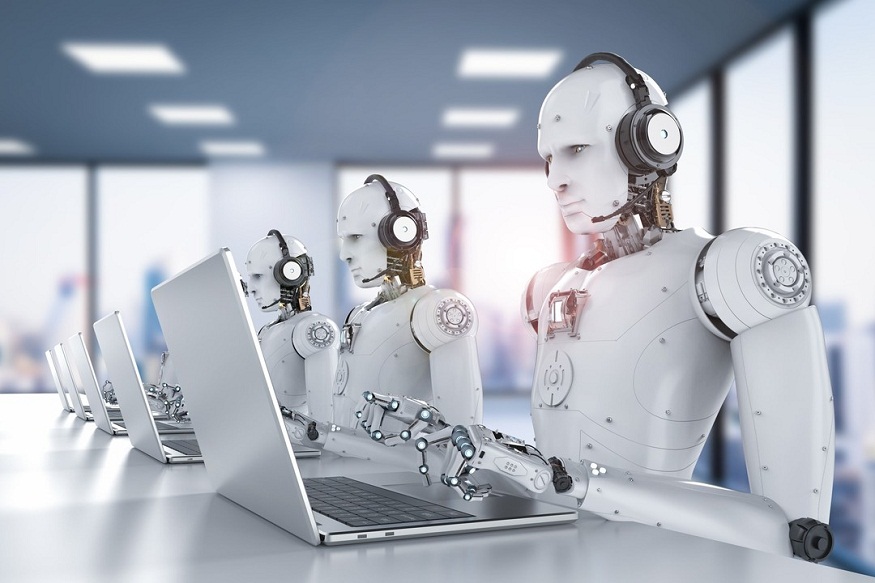Artificial Intelligence (AI) is transforming the way many industries function, fostering creativity, productivity, and new opportunities. Its revolutionary influence is seen in many different fields, changing possibilities and procedures. There are also a number of artificial intelligence courses on the rise as a result. This article examines the substantial changes artificial intelligence (AI) is bringing about in a number of industries and the corporate landscape.
Healthcare
AI is quickly changing the game in the healthcare industry. Complex medical data is being analysed using advanced algorithms and machine learning techniques, resulting in quicker and more accurate diagnoses. Artificial intelligence (AI)-enabled diagnostic technologies can spot patterns in medical pictures, such as MRIs and X-rays, that the human eye can miss. AI is also being used in personalised medicine, where treatment programmes are created based on a patient’s genetic composition and medical background. This will lead to improved patient outcomes and cost savings through more effective and efficient care.
Finance
Artificial Intelligence is also causing major upheaval in the banking business. AI systems can examine enormous volumes of data in risk management to identify fraudulent activity and forecast possible risks with previously unheard-of precision. This improves financial institutions’ capacity to protect assets and adhere to legal regulations. Furthermore, by offering round-the-clock assistance, responding to inquiries, and handling repetitive tasks, AI-powered chatbots and virtual assistants are transforming customer service. Customer satisfaction and operational effectiveness both increase as a result.
Retail
Businesses are using artificial intelligence (AI) to enhance supply chain management and tailor the shopping experience. AI-powered recommendation engines evaluate consumer behaviour and preferences to provide tailored product recommendations that improve the shopping experience and increase revenue. AI is also being used to simplify logistics, manage inventories, and forecast demand, ensuring that goods are available when and where customers need them. This lowers operating costs while also raising customer satisfaction.
Manufacturing
AI is changing maintenance plans and production procedures in the manufacturing industry. Predictive maintenance systems driven by artificial intelligence (AI) evaluate sensor data on machinery to forecast when a component is likely to break, enabling prompt maintenance and cutting downtime. This prolongs the life and effectiveness of the machinery, reducing expenses and raising output. AI is also being utilised to optimise production lines, guaranteeing that manufacturing procedures are as economical and efficient as feasible.
Education
Innovations in AI are also advantageous to the education sector. Learning experiences are becoming more individualised thanks to AI-powered technologies that adjust course material to each student’s needs and learning style. This customised strategy improves the results and engagement of the students. AI is also being used to handle administrative duties like scheduling and grading, which frees up teachers to concentrate more on instructing and connecting with students. Enrolling in an artificial intelligence course can offer insightful knowledge and transferable abilities that can be applied to a variety of industries for individuals who are interested in learning more about these breakthroughs.
Transportation
AI is driving significant progress in the transport sector. AI-powered autonomous cars have the potential to completely transform the way we travel by offering safer and more effective modes of transportation. To navigate and make decisions, AI algorithms process data from cameras and sensors in real-time, lowering the possibility of human error. AI is also being utilised in logistics to manage fleets and optimise routes, resulting in faster delivery times and lower costs.
Conclusion
Artificial Intelligence is driving innovation and efficiency in ways that were previously unthinkable across many different industries. AI is revolutionising industries, improving customer experiences, and opening up new business opportunities in everything from manufacturing and healthcare to banking and retail. The subject of artificial intelligence is constantly evolving, and professionals must be up-to-date and proficient in order to remain relevant in this ever-growing industry. Joining an artificial intelligence course can provide people with the skills and information they need to take advantage of AI’s full potential and alter their respective industries.

